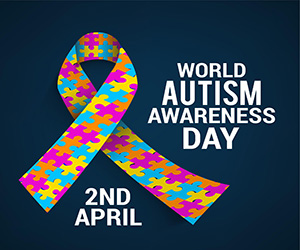For some, 2022 brings a new positive outlook, a new workout routine, new opportunities, and new friends. Yet, while those things sound great, juggling it all can quickly become overwhelming and before you know it, you are headed down a road to burnout. Millennials were taught to work hard, get that degree and most of all, overcome. Unfortunately, what wasn’t taught was the importance of properly taking care of your mental health to keep up with it all. Actively dealing with your mental health, whether it be talking to your loved ones or a therapist, meditating, journaling, or all the above, is fundamental to happy, healthy, and successful living. Thankfully, social media and the developing social conversation around mental health has and continues to bring awareness to the public. For example, terms like “positivity” have been helpful to many, but when there is a lack of awareness for its opposite – “toxic positivity” – the helpfulness that positivity offers can quickly turn into hopelessness. The ability to freely communicate your feelings without judgement – and without being shamed into gratitude for what you have in comparison to another – is critical when avoiding the clutches of toxic positivity.
Mahmoud Khedr, the speaker in the YouTube TEDx Talks publication “How Toxic Positivity Leads to More Suffering,” describes how positivity can be toxic. He explains that he was once a person who unknowingly exhibited toxic positivity. He utilized it to deal with bullying in high school, money problems at home, and carried it into his time in college, and adulthood. When Khedr’s friends would come to him with complaints about work or school, he would quickly shut them down with a positive mantra and send them on their way. Growing up in a household where the number one thing was to always be grateful, Khedr’s personal struggles – or at least discussing them – were overshadowed. In adulthood, his responsibilities and failures became too much to bear, and he tried to take his own life. His experience awakened him, and he began to see the importance of discussing your hardships and letting go of “the standard that society is setting for us to be positive all the time.”
Khedr explains that “when positivity is pushed to an extreme, it is toxic.” He defines toxic positivity as “the push for a mental state in which we only experience and show positive emotions” and encourages the “tendency to react to others’ suffering and struggles with reductive statements of positivity.” The expectation to be happy all the time and the invalidation that this expectation creates for those that don’t is extremely counterproductive to the work the individual needs to do to actually be and feel positive. Khedr goes on to point out that “two studies published in Motivation and Emotion show that those who acknowledge and validate their emotions progress way better than those who live in denial.” He encourages viewers to be there for their loved ones during the hard times, rather than just telling them to be positive. Simply, honestly express how you feel, validate your emotions, and let go of the societal standard to just shut up and be positive.
Writer Romano Santos, the author of “How to Break Away from Toxic Positivity,” discusses the guilt or shame that people begin to have around their feelings when they are consistently told to “look at the bright side” or that “things could be worse.” Business owner Cara Paguio shares, “it took me a long time to realize that counting my blessings wouldn’t make my problems disappear.” Yoga instructor Joshua Webb articulates how he utilized “radical acceptance” which is “about first accepting [these emotions] as they are, allowing ourselves to process and feel these emotions, and then moving forward.” On the road to healthy positivity, people must take adequate steps to get to an overall positive mental state and accept that it is normal not to be and feel positive all the time. Work on your mental state, write out your emotions, discuss your feelings with a therapist and reach out to loved ones whenever you need to and without any shame.
Personally, being a 26-year-old college student, paying rent, juggling a job and an internship in the year 2022 is a lot, to say the least. The concerns around COVID-19 adds even more to my platter. Luckily, the solace that mental health education and awareness offers relieves some of that pressure. Being aware of my emotions, paying attention to how those emotions affect my daily life and performance, and having the knowledge that it’s more than okay to express those emotions has started to make my life more livable. Understanding, discussing, and managing my anxiety has also created a positive space in my life that was overshadowed by the toxic positivity unknowingly spewed at me by loved ones. I’ve begun to understand that there is room for my not-so-positive feelings and thoughts and ways of working through them, but only if they are acknowledged and spoken of. Having an intimate relationship with the truth of how I feel has launched me on to the path of building an intimate relationship with myself. And because of this, I can begin to find the mental peace that all of us long to have.
Speak your truth and never suffer in silence. We all have our struggles, some that are similar to others, and some that are very personal to us individually. Take care to take care of your mental health and ignore any advocate of toxic positivity on your journey. If you’re angry or sad, feel that, voice that, without any concern for being considered negative. Remember, no positive could have ever existed without a negative, so both are very important to experience in life. In turn, learning how to healthily deal with the negative that may befall us will help us enjoy the positive that comes out of the very same hard work that stressed us out in the first place.
Sources
Santos, Romano. “How to Break Away from Toxic Positivity.” VICE, 7 Oct. 2021, https://www.vice.com/en/article/wx5v39/avoid-toxic-positivity-mental-health-tips.
TEDxTalks, Mahmoud Khedr. “How Toxic Positivity Leads to More Suffering.” YouTube, TedxMenloCollege, 22 Nov. 2019, https://www.youtube.com/watch?v=5EOj2Z7hw5w.


















Add comment